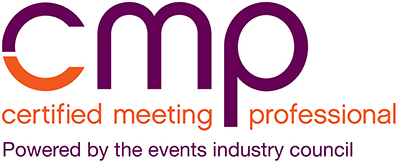Positive.
![]() Print this Article | Send to Colleague
Print this Article | Send to Colleague
“Positive? Seriously? Didn’t he have it already? AND didn’t he confirm he got vaccinated?”
We had just gone wheels down in Costa Rica, and the first text arrived as we landed. Thankfully, we were three days ahead of our main arrivals. Within three hours, we would get our second notification. Another vaccinated attendee. Another positive test result before departure. Delta. Both had almost no symptoms, but had, out of an abundance of caution, gotten a rapid test a few days prior to departure.
I had just started feeling comfortable trusting that my shots (that I was so excited to get in March) would be my “silver bullet” not only from getting sick, but to also prevent others from getting sick. That comfort evaporated in the span of two text messages.
While I knew as I heard the news that my decision to get the vaccine gave me the benefit of being highly unlikely to end up in a hospital or even show a single symptom, my heart sank as I realised that I had real life confirmation that what authorities had been suspecting could be the case: I could very much still be a contributor to the spread of it. That fact now cemented into place in my head, two days before our group was scheduled to arrive at a resort where 99% of the staff were unvaccinated and 99% of our attendees were fully vaccinated, all of whom were relishing their newfound maskless freedom in the U.S. but were arriving to a situation akin to the U.S. in April.
Moral of this story, I suppose? The marathon isn’t over yet, my friends. Not by a long shot. As planners and hosts of some of these critical fledgling events that are breathing precious life back into our industry, it’s now that we need to be more vigilant than ever to ensure we don’t get a second wave of cancellations and layoffs. We need to ensure that we aren’t being lulled into any kind of false sense of security, and we need to plan with all the potential realities in mind – the top one being that COVID-19 is not done with us quite yet.
40% of the country cannot or will not take the vaccine. That means in a room of 100 attendees, you may end up with 40 on average who are not protected (much less or much more based on the demographics and belief system of the group). All meeting stakeholders need to be aware and have an emergency plan in place. It needs to be reviewed and agreed upon before any event starts. And, like we do with all events, we then need to roll with that plan that is in place and be ready to change it. Quickly.
We cannot solely be concerned about our attendees. We must be cognizant of the staff that is eager to begin earning and working again, particularly if we are managing groups outside of the U.S. borders who may be walking into a destination that has not had the benefit of plentiful and effective vaccinations.
So, for now, I am going to avoid the temptation of keeping that mask off indoors. I am going to be thankful that 100% of our events are in outdoor locations. I am going to be so proud of the 600,000 shots that the U.S. sent here this week due to our country’s lack of demand, enabling the over 1,000 locals that work in this area to get vaccinated yesterday (our Pre-Con was a wave of people coming and going – many with tears in their eyes as they got called for their turn). We are going to work our plan, take care of our people and are going to try to be good global citizens – until we can talk about COVID-19 in the past tense.
Best Wishes,
Alisa Peters, CMP, CMM
Chair, CMP Governance Commission

